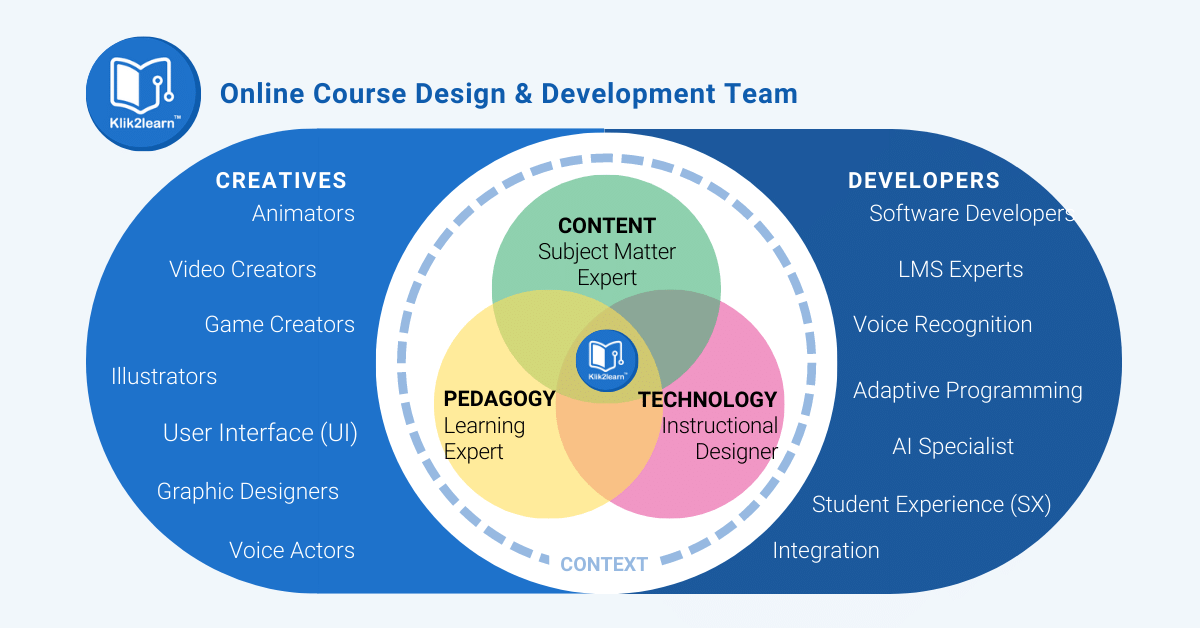Mastering Online Learning: Essential Skills for Success
Online learning has become an integral part of education today. With the flexibility it offers, students can learn from anywhere at any time. However, succeeding in an online learning environment requires a specific set of skills. In this article, we will explore the key skills you need to master in order to excel in online education, providing practical tips and strategies to enhance your learning experience.
.jpg)
1. Time Management: The Foundation of Success
In online learning, you are often responsible for managing your own time. Without the structure of a traditional classroom, it can be easy to fall behind. Effective time management is essential to ensure you meet deadlines and complete coursework on time.
Time Management Tips:
-
Create a Study Schedule: Allocate specific time slots for studying each subject or task.
-
Use Tools and Apps: Apps like Google Calendar or Trello can help organize your tasks and remind you of deadlines.
-
Avoid Procrastination: Break tasks into smaller, manageable parts to prevent feeling overwhelmed.
By mastering time management, you’ll ensure that you stay on track and can balance your study, work, and personal life effectively.
2. Self-Discipline and Motivation
In an online learning environment, you don’t have a teacher standing over you to keep you motivated. Self-discipline is crucial in maintaining a consistent study routine.
How to Stay Disciplined:
-
Set Specific Goals: Break down your learning objectives into small, achievable goals.
-
Create a Study Environment: Find a quiet space with minimal distractions to help you focus.
-
Reward Yourself: After completing a task or meeting a goal, treat yourself to something you enjoy.
Self-discipline helps you stay focused and consistent, which is essential for success in online education.
3. Tech Skills: Navigating the Online Platform
Understanding the digital tools and platforms used in online learning is essential. Whether it’s navigating Learning Management Systems (LMS), participating in online discussions, or using video conferencing tools, familiarity with these platforms enhances your learning experience.
Tips to Enhance Your Tech Skills:
-
Familiarize Yourself with the LMS: Explore the features of your school’s LMS and learn how to access assignments, grades, and other materials.
-
Master Video Tools: Learn how to use video conferencing platforms like Zoom or Skype for virtual classes and meetings.
-
Use Cloud Storage: Use tools like Google Drive or Dropbox to store and access your study materials from anywhere.
By improving your tech skills, you’ll be able to navigate the online learning environment with ease.

4. Effective Communication in Online Courses
Communication is just as important in online learning as it is in a physical classroom. Since most interactions happen through written communication—emails, forum posts, or discussion boards—it’s important to be clear and concise.
Tips for Effective Communication:
-
Be Clear and Concise: When writing emails or posts, be brief and to the point.
-
Engage in Discussions: Actively participate in online discussions to enhance your understanding of the topic.
-
Ask Questions: Don’t hesitate to ask your instructors or classmates for clarification if you don’t understand something.
Strong communication skills help you connect with instructors and peers, fostering a productive learning environment.
5. Critical Thinking and Problem-Solving
In online learning, you’ll often be tasked with analyzing complex topics and solving problems independently. Developing critical thinking skills is crucial to understanding and applying the material.
How to Develop Critical Thinking:
-
Ask Questions: Challenge the material by asking questions like “Why?” or “How does this work?”
-
Analyze Different Perspectives: Consider different viewpoints to deepen your understanding of the topic.
-
Apply Knowledge to Real-World Scenarios: Relate what you’ve learned to practical, real-world situations.
Critical thinking allows you to engage deeply with the content, improving your ability to apply concepts in various situations.
6. Collaboration and Teamwork
Even though online learning is often independent, there are still opportunities for collaboration. Working with classmates on group projects or participating in peer review can enhance your learning.
Tips for Effective Collaboration:
-
Be Open to Feedback: In online group settings, it’s important to accept and give constructive feedback.
-
Use Collaboration Tools: Tools like Google Docs, Slack, or Zoom make group projects easier.
-
Respect Deadlines: Make sure to communicate regularly with group members and stay on top of your tasks.
Collaboration skills help you work efficiently with others, even in a virtual environment.
7. Adaptability and Flexibility
Online learning often requires you to adapt to new technology, different teaching methods, and changing schedules. Being flexible and open to change is key to thriving in this dynamic learning environment.
How to Develop Adaptability:
-
Embrace New Tools: When your course introduces a new platform or tool, take time to learn it instead of resisting it.
-
Stay Open to Feedback: Be willing to adjust your learning strategies based on feedback from instructors or peers.
-
Be Proactive: Take the initiative to learn beyond the course materials to fill in gaps and expand your knowledge.
Being adaptable allows you to overcome challenges and make the most of online learning.
8. Time for Self-Care
Balancing the demands of online learning can be stressful. It’s important to prioritize your mental and physical health to prevent burnout and stay productive.
Tips for Effective Self-Care:
-
Get Regular Exercise: Exercise helps relieve stress and improve concentration.
-
Sleep Well: Adequate sleep enhances memory and cognitive function.
-
Take Breaks: Avoid long study sessions without breaks. Taking time for yourself helps maintain focus and productivity.
Taking care of your well-being ensures you have the energy and focus necessary for success in online learning.

9. Building a Support Network
Online learning can sometimes feel isolating, but building a strong support network can provide motivation and guidance when needed. Surround yourself with people who encourage you and share your academic goals.
How to Build Your Support Network:
-
Connect with Classmates: Join study groups or online discussion forums to engage with peers.
-
Reach Out to Instructors: Don’t hesitate to ask for help when needed. Instructors are there to support you.
-
Leverage Family and Friends: Encourage family and friends to support your study goals.
A support network can provide emotional support and practical help, making your online learning experience more fulfilling.
10. Maintain a Positive Mindset
Staying positive can significantly impact your ability to succeed in online learning. Embrace challenges as opportunities to learn and grow, and focus on your long-term goals.
Tips for Staying Positive:
-
Visualize Your Success: Picture yourself completing your courses and achieving your academic goals.
-
Celebrate Small Wins: Acknowledge your progress, no matter how small, to stay motivated.
-
Stay Patient: Online learning can be difficult, but with persistence, you will succeed.
Maintaining a positive mindset allows you to stay motivated and resilient, even when faced with difficulties.

Frequently Asked Questions (FAQs)
1. How can I improve my time management for online learning?
Use scheduling tools like Google Calendar or Trello, and break tasks into smaller, manageable chunks.
2. What skills do I need for online learning?
You need strong time management, self-discipline, communication, and tech skills to succeed in an online learning environment.
3. How do I stay motivated in an online course?
Set clear goals, create a structured study environment, and reward yourself for reaching milestones.
4. What tools can I use to collaborate with classmates online?
Tools like Google Docs, Zoom, and Slack help facilitate communication and collaboration in online courses.
5. How can I avoid distractions while studying online?
Create a dedicated study space, turn off notifications, and use time-blocking techniques to stay focused.
Conclusion
Mastering online learning skills is essential for success in today’s digital education environment. By developing strong time management, self-discipline, and tech skills, you can improve your learning experience and achieve your academic goals. Stay motivated, be adaptable, and remember to prioritize your well-being to make the most of your online learning journey!








